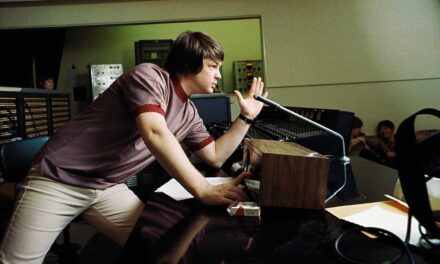In case you had missed it: Scotland voted no. Marginally, but they did. For some of us who were watching from afar, this came as a massive shock, largely because the politically outspoken world we had engaged with (via Twitter, Facebook and blog pages such as Wings over Scotland and Bella Caledonia) seemed at least to be 80% on the yes side. And that was despite the fact that nearly all established news sources were clearly favouring the Better Together (BT or ‘No’) camp. More importantly, it felt at points as if the rest of the UK weren’t quite allowed to be part of the debate. They were clearly being addressed by some of the online sources, particularly when socialist writers tried to argue against the charge of ‘Nationalism’ that often came from the mainstream media. And yet, apart from expat Scots and a few non-Scottish Celtic fans, most people I spoke to needed to be asked what they thought about the potential break-up of the UK before they would talk about it. And more importantly: most seemed uncertain, in the same way that Scotland had been when the referendum was first announced, and therefore significantly further removed from the debate than even my German family was (who wanted to talk about the referendum constantly). I should say now, that I live in Liverpool, one of the most politically-minded cities in the country, so all of this should be a surprise.
One of the reasons for why so few people seemed to know in England is connected to the failure of the established news sources, and in particular television, to report on the referendum in a way that was reflective of what was going on in Scotland. A research project at the University of the West of Scotland noted significant bias in television reporting in favour of the BT campaign, with a ratio of 3:2. In addition, and this is what the Guardian noted too, the established news sources seemed unable to understand the campaign outside of the usual boundaries of party politics or reflect the real vibrancy of the debate online, or indeed on the streets. But more important for this blog is the recognition that the UK-wide news practically ignored the referendum debate in the first year of the campaign. As John Robertson puts it rather detachedly: ‘This apparent disinterest in a major constitutional challenge to the very existence of the UK, by its two dominant news programmes, is the first observation to be taken from the … data’.
So why did ITV News and the BBC not report on the campaign? Did they assume the referendum was not of any interest to the English (and Welsh and Northern Irish) people? Should the BBC not have been reporting on it, considering that it is regulated on the basis to provide information, education and entertainment to the United Kingdom – the whole Kingdom and, by doing so, to unite it as a nation (Scannell 1990)? And what about the charge of bias, which now seems proven in the face of the data that the University of the West of Scotland has compiled? Of course, quite a few of the charges were directed personally at Nick Robinson, the BBC’s political editor and former Tory Party member. Indeed, his particular coverage sparked quite a number of protests itself, and generated some further social media content.
However, it wasn’t just the London-based arm of the BBC that was at fault. Robertson highlights that this skewed reporting continues into the regional franchise of the BBC:
The sequence of statements whereby anti-independence arguments preceded pro-independence responses as opposed to the reverse order is of interest. There was a clear majority (66:24) of the former, on Reporting Scotland where ‘bad news’ about independence came first and obliged a defensive response from a pro-independence spokesperson but a much narrower majority (61:53) on STV News. The Reporting Scotland imbalance tends to normalise the No/anti-independence position and put the onus of the Yes/pro-independence position to justify itself.
The particular charge then is against the BBC, the public service broadcaster funded by all of us and thus, supposedly, owned by all of us. So, how can it be that the BBC, which is supposed to be impartial, and spends significant amount of time and resources deliberating what that means (see for example the BBC Trust’s webpages on the topic), will be struggling to defend its position? And this, despite the fact that there were moments when the BBC exposed the problematic political strategies of the BT campaign:
So, to come to the crux of my blog: how did the BBC end up in a mess where it seems to completely have turned its back on its public service commitments?
The traditional answer to that question is that the BBC is too London-centric and too close to the elitesthat it is supposed to examine. Indeed, quite a few commentators, including former director general Mark Thompson himself point to the fact that most of the BBC’s senior management comes from the same privileged backgrounds as the current government. But I think we might have to consider another factor – and judging from my conversations with different members of staff working within and outside but for the BBC, this is the main factor dominating production today: budgets.
One thing that has rarely been mentioned recently is that the BBC is still operating on the same licence fee as it was four years ago, and will continue to do so for another two years. Considering that inflation was at approximately 3% in 2010, 4.5% in 2011, 2.7% in 2012 and 2013 and is currently at 1.5%, this means a significant reduction of income. Indeed, even though the BBC’s income from the licence fee increased last year by £16 million due to an increase in the number of households, it should have increased by £650 million since 2010. If we go back a little further, for example to 1968 when the colour licence was introduced, we see that the current licence of £145.50 should actually be £158 per household per year. That translates to £330 million pounds more the BBC should be getting per year, even if the licence were at the relatively low level from 1968 – before digital services and the need to cover the costs of the BBC World Service out of their own pockets.
How does all of this connect to the BBC’s reporting of the referendum, you say?
What would you do if you were really pressed for money, moving services into the online sphere to cut costs, considering splitting production completely from the broadcast arm in order to bring down production costs and starting to prepare for the Charter Renewal with the possibility of having to do this under a hostile Tory government? Christine Geraghty has already laid out that the Charter Renewal is always connected to political jostling. But there is more to this yet: we are getting to a similar stage that we were at in the 1970s when high inflation made a mockery out of the modest increases to the licence fee offered by governments from different sides of the political spectrum. The BBC then started a massive PR campaign to lobby for a higher licence fee – and it took the incoming Thatcher Government of all governments to raise the licence to a more adequate level.
Perhaps we are nearly there again: lobby and appease those in power, so that they will finally grant an increase rather than another 6-year freeze in order to help ‘struggling families’. Of course, seen from our side, the struggling family side, the freeze seems like a fair thing to do. But in actual fact, we are losing out on a real service from which we should all be able to benefit. And this was already exposed in the referendum coverage where the established parties (Conservative, Labour and Lib Dems) were all on the same side. For a financially struggling BBC, faced with a charter and a licence fee renewal, that inevitably meant that there was only one side to take.
Elke Weissmann is Reader in Film and Television at Edge Hill University. She is currently considering changing this to Reader in Television and Film, however. Her books include Transnational Television Drama (Palgrave) and the edited collection Renewing Feminisms (I.B.Tauris) with Helen Thornham. She is vice-chair of the ECREA TV Studies Section and sits on the board of editors for Critical Studies in Television. She migrated to the UK in 2002 after realising that German television was as bad as she remembered.




